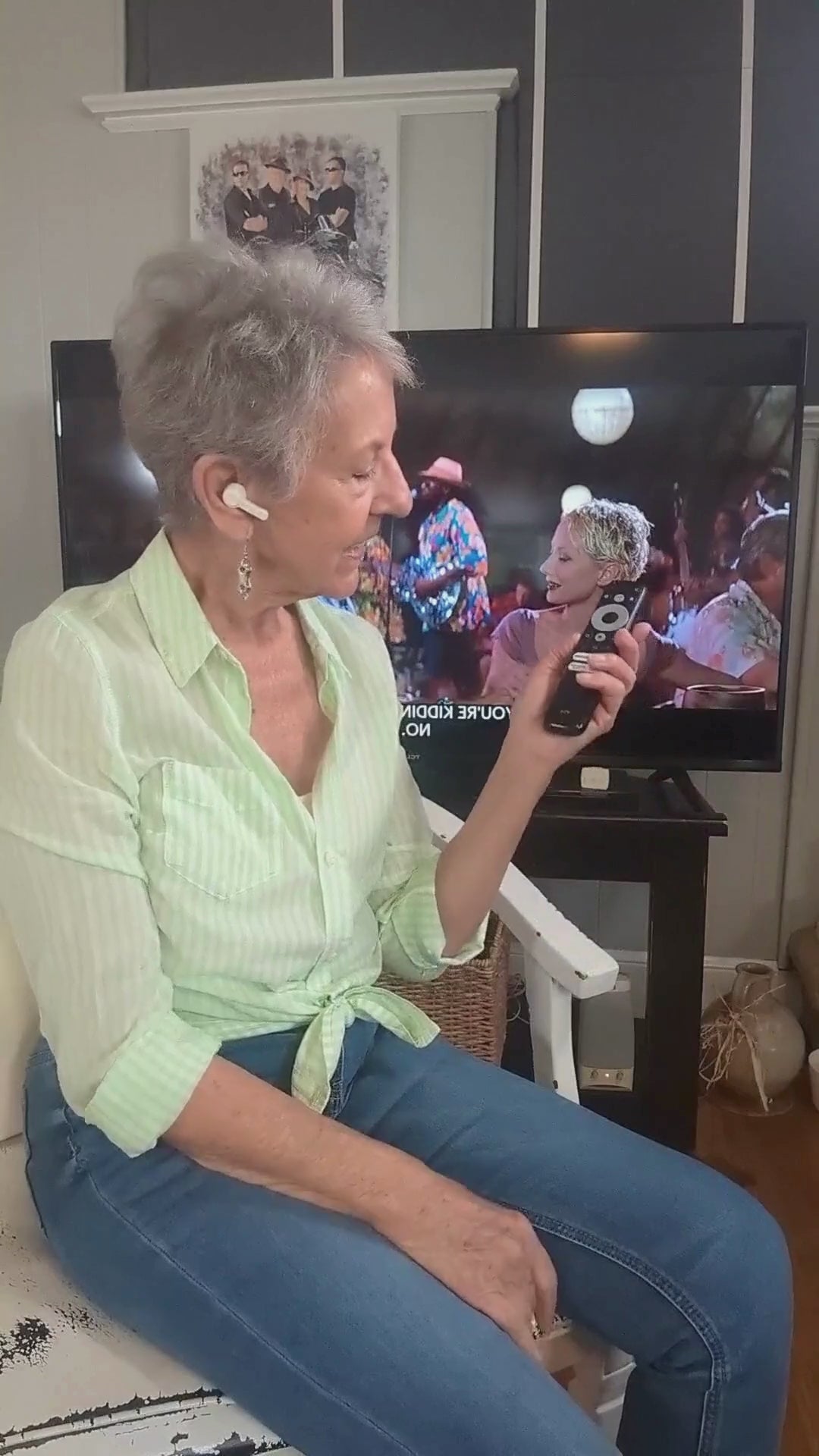Rechargeable Behind-The-Ear Hearing Aid
For many people, buying and replacing batteries is a part of owning hearing aids. However, rechargeable batteries are changing the way we use and design hearing aids. Lithium-ion batteries rechargeable Behind-The-Ear/BTE Hearing Aid is the next step in hearing aid innovation, and they provide a number of benefits to the people who use them.
- Suitable for Elderly
- No Additional Cost
- Better in Cold Weather
- More Energy Efficiency
- Environmental Friendly
Design of Behind-The-Ear/ BTE Hearing Aid
Behind-the-Ear/ BTE hearing aid is the most common style on the market and it sits behind the ear. The sound passes through a tube to an earpiece that is perfectly adapted to your ear. The design of the Behind-The-Ear/ BTE Hearing Aid makes them easier to handle and clean. So, it is the best hearing aid type for first-time hearing aid users.
Better for Older Wearers
If you have limited vision or poor dexterity, it is difficult for you to change the small battery hearing aid each time. Therefore, a rechargeable hearing aid is better for older wearers. Hearing aids with rechargeable batteries can just be inserted into a recharging unit at night, or when you are not using them. With the battery built into the rechargeable Behind-the-ear/BTE hearing aid, it means you don’t have to worry about a battery going dead, and no more inconvenient hassles of changing the battery.
In-The-Ear VS Behind-The-Ear Hearing Aid
| In-The-Ear (ITE) Hearing Aid | Behind-The-Ear (BTE) Hearing Aid |
| Virtually Invisible | Comfortable |
| Light | Easy To Clean |
| Size: Small | Size: Medium |
What is In-The-Ear Hearing Aid?
In-The-Ear Aids (ITE) devices fit in the outer ear bowl (called the concha). Being larger, these are easier to insert and can hold extra features. They are sometimes visible when standing face to face with someone. ITE hearing aids are custom-made to fit each individual's ear.
NO ADDITIONAL COSTS ON BATTERIES
Hearing aid users might spend up to $100 per year on disposable batteries. Using a rechargeable Behind-The-Ear/BTE Hearing Aid is environmentally friendly. Rechargeable Behind-The-Ear/BTE Hearing Aids let you enjoy superior sound quality without the need to regularly buy and change hearing aid batteries.
ENVIRONMENTALLY FRIENDLY
Many of us are finding ways to be more environmentally friendly, cutting down on disposable products like straws, napkins, and single-use batteries.
Although lithium-ion batteries must be properly disposed of when you get rid of your hearing aids, they can be recharged thousands of times. Compared to zinc-air batteries, which can only be used once and tossed out, lithium-ion batteries are better for the environment when handled correctly.
Rechargeable Hearing Aid VS Disposable Hearing Aid
| Rechargeable Hearing Aid | Disposable Hearing Aid |
| Environmental Friendly |
Long Battery Life
|
| Energy Efficiency |
Easy To Use
|
Type of Rechargeable Batteries In Today’s Hearing Aid
Lithium-Ion Batteries
This is the preferred option for rechargeable Behind-the-ear/BTE hearing aid and most rechargeable Behind-the-ear/BTE hearing aid brands are moving to Lithium-ion technology.
What is Rechargeable Battery?
A rechargeable battery, storage battery, or secondary cell, (or archaically accumulator) is a type of electrical battery that can be charged, discharged into a load, and recharged many times, as opposed to a disposable or primary battery, which is supplied fully charged and discarded after use.
What is a Disposable Battery?
Zinc-air button disposable batteries, also known as "button batteries," are the other common option. Because zinc-air batteries are air-activated, a factory-sealed sticker allows them to remain inactive until it is removed. Once peeled from the back of the battery, oxygen will interact with the zinc in the battery and “turn it on.” To get the best performance from a zinc-air battery, wait about one minute after removing the sticker to fully activate before placing it in the hearing device. Replacing the sticker will not deactivate the battery, so once the sticker is removed, the battery will remain in an active state until the power is drained.
WORKING BETTER IN COLD WEATHER
It’s a well-known fact that zinc-air batteries struggle to function properly in cold weather. The lack of moisture and low temperatures weaken the batteries quickly, draining your rechargeable Behind-the-ear/BTE hearing aid and causing issues with the sound quality.
FAQ
How long does a rechargeable hearing aid last?
If your rechargeable hearing aid doesn't have a battery door, it contains a Lithium-Ion rechargeable battery. These batteries take about 3-4 hours to fully charge and will power your hearing aids for about 24 hours per charge. The battery itself should last for the entire life of the hearing aid, typically 4-5 years.
Is There Any Cost Savings with a Rechargeable Hearing Aid?
In most cases, the cost of rechargeable and traditional hearing aid batteries is about the same. Your initial investment when choosing rechargeable will include the charger and the cost of the first rechargeable battery or batteries. The rechargeable battery life will depend on the type of rechargeable battery your hearing aids use. The annual/routine cost of replacement rechargeable batteries is currently about the same as disposable batteries.















